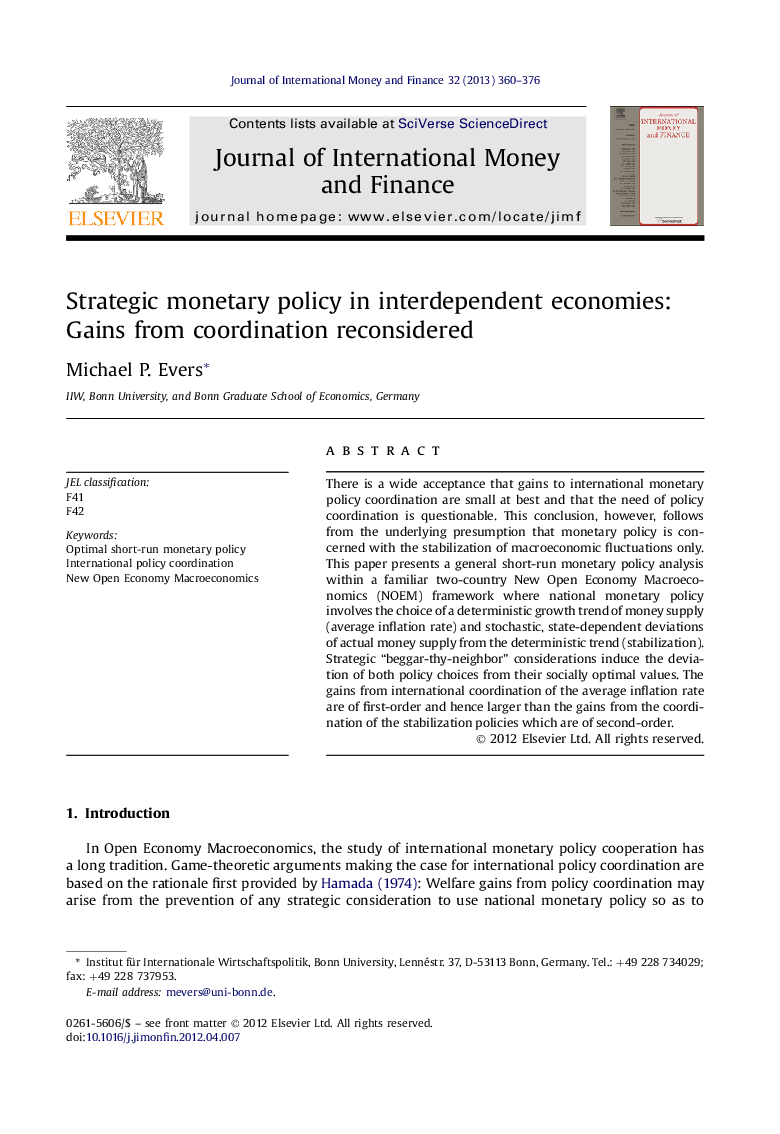| Article ID | Journal | Published Year | Pages | File Type |
|---|---|---|---|---|
| 7366196 | Journal of International Money and Finance | 2013 | 17 Pages |
Abstract
There is a wide acceptance that gains to international monetary policy coordination are small at best and that the need of policy coordination is questionable. This conclusion, however, follows from the underlying presumption that monetary policy is concerned with the stabilization of macroeconomic fluctuations only. This paper presents a general short-run monetary policy analysis within a familiar two-country New Open Economy Macroeconomics (NOEM) framework where national monetary policy involves the choice of a deterministic growth trend of money supply (average inflation rate) and stochastic, state-dependent deviations of actual money supply from the deterministic trend (stabilization). Strategic “beggar-thy-neighbor” considerations induce the deviation of both policy choices from their socially optimal values. The gains from international coordination of the average inflation rate are of first-order and hence larger than the gains from the coordination of the stabilization policies which are of second-order.
Related Topics
Social Sciences and Humanities
Economics, Econometrics and Finance
Economics and Econometrics
Authors
Michael P. Evers,
